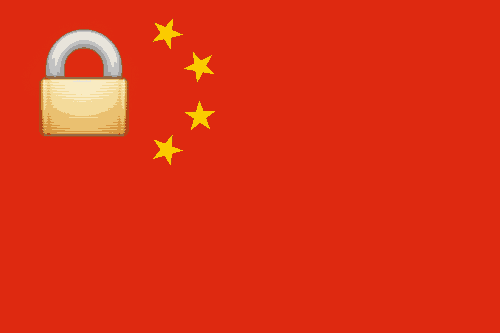My updates are becoming bi-weekly, which is fine, I think. We’re getting close to the People’s Congress, so more news about censorship is getting picked up by Western media and discussed in broader terms than normal.
General Censorship
- China Blocks WhatsApp (The Verge)
- This isn’t much of a surprise with the upcoming People’s Congress. Any network or website the government can’t influence or monitor directly will ultimately be blocked.
- The Great Hive of Propaganda (China Media Project)
- A great overview of some of the new cybersecurity rules relating to online chat groups (likely targeting WeChat groups) and its greater implications in an already closed system of networks.
- 68 Things You Cannot Say on China’s Internet (New York Times)
- Writers and content producers often run afoul the vague language which governs publishing and online writing in China. While the government doesn’t actively censor content itself, they instead give “guidance” to private companies on how to block content. This leaves little recourse and often confounds readers as much as writers.
- Shrinking Anonymity in Chinese Cyberspace (Lawfare)
- New management policies introduced in the last few months relating to Internet content management in China has gotten a lot of attention. The widely-discussed Social Credit System is likely the primary driver of these new policies. Monitoring speech of all online users (and matching said users with real people) has been a long-coming project for Party leaders.
- Chinese University head vows removal of pro-independence slogans if student union fails to act (Hong Kong Free Press)
- Vice-Chancellor of Chinese University of Hong Kong: “Freedom of speech is a cornerstone of the university, and every member of the university should have the freedom to express any idea. This is not to say that the exercise of this freedom should be boundless.” Of course this is completely contradictory, but it highlights the continued tensions in Hong Kong over its disaffected youth and the specter of continued mainland influence in the former British colony.
- Related: Carrie Lam voices support for universities’ plan to remove Hong Kong independence banners (South China Morning Post)
- China is retaliating against a US university for inviting the Dalai Lama to speak at graduation (Quartz)
- As China begins to exert more clout globally, there’s some evidence showing that the government is trying to export its ideology and censorship regimen overseas. As China’s censorship protocols and methods get developed into more complex legal policies and frameworks, it will be easier to export its governance as a coherent global doctrine opposite of “Western” values.
Internet Sovereignty
- Facebook Navigates an Internet Fractured by Governmental Controls (New York Times)
- The Chinese government loves seeing stories like this. It proves that if Western tech companies are willing to change how they operate in markets like Vietnam and the EU, they will eventually bend to the parameters of the Great Firewall. All the while showing that freedom of speech isn’t important to making money.
- China extends rule of law on Internet (Global Times)
- As Internet censorship gets discussed more widely by the Chinese government, be aware of frequent use of phrases relating to cybersecurity law, rule of law and internet sovereignty. These will be the defining rationales for blocking content, arresting people that distribute VPNs and infringe on overall internet usage.
- How Facebook is Changing Your Internet (New York Times)
- This doesn’t have to do with internet censorship or internet sovereignty sovereignty so much as the continued balkanization of internet spaces. Why does the Chinese government need censor the internet when people are doing it to themselves?
Oddities
- China Communist Party Youth Twitter account prompts abuse (BBC)
- Despite the lack of access for all Chinese citizens, many government-controlled websites often use blocked sites like Twitter and Facebook to spread news (The People’s Daily, Global Times and have their own Twitter account and Facebook “like” buttons embedded). The irony of the Communist Youth League on Twitter was not lost on Chinese-speaking netizens.



